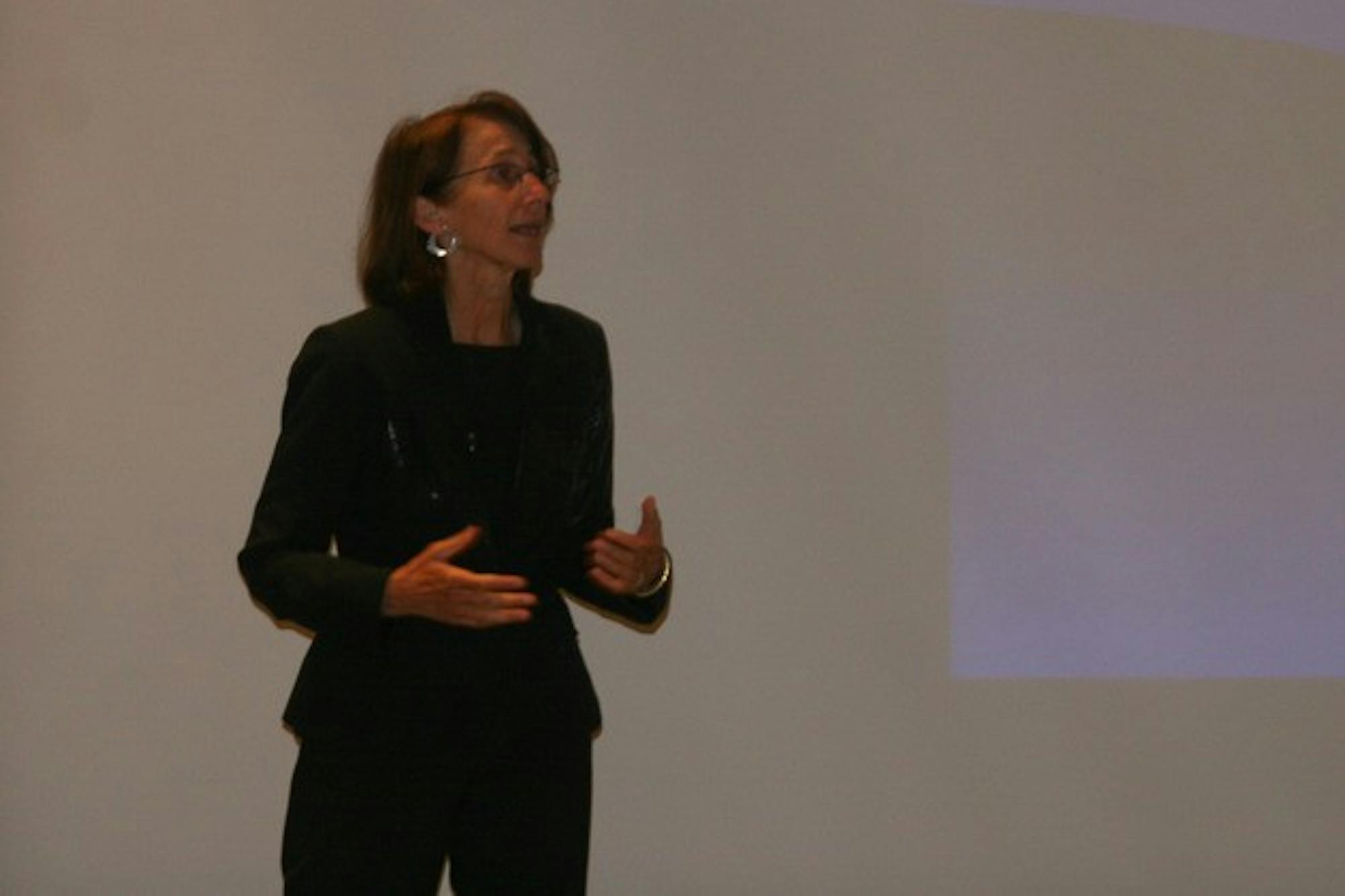Vermont Law School professor Janet Milne discussed ways the U.S. can incorporate carbon taxes into environmental regulation policies in a lecture Thursday afternoon in Filene Auditorium.
The U.S. Senate is currently debating a bill that would institute a carbon tax. This bill would impose tax of $20 per ton for the first calendar year, adjusted for inflation each year to preserve the tax's value over time.
The bill also includes an equivalency fee or border tax adjustment, which mandates that carbon emission fees are paid for goods that are imported.
Unlike cap-and-trade, carbon taxes are not susceptible to market manipulation. Because carbon taxes are set at a particular price and involve a simple relationship between the Internal Revenue Service and the taxpayer, they are much easier to administer, Milne said.
The bill would use the substantial revenue from this tax to fund state and local government climate change programs. The revenue could also be used to cover tax deductions for taxpayers and to fund disaster assistance programs, as carbon dioxide emissions can cause climate change and impact weather patterns, she said.
"Why shouldn't polluters of today pay for conditions of tomorrow?" she asked.
Milne praised the bill as a realistic option for cutting carbon dioxide emissions. She said that while varying policies across states is ineffective, a national carbon tax creates consistent, ongoing incentives to reduce emissions.
She also discussed the need to take a closer look at consumption taxes in the U.S. more generally, as they represent only a small percent of national revenue. Milne said that an increase in consumption taxes could be used to benefit "green investments."
While the carbon tax has the potential to appeal to both conservatives and liberals, its passing would be still be a "seismic event," she said.
Milne used the example of British Columbia, which has effectively used well-defined and comprehensive tax bases to increase revenue for the past five years.
Milne also said there are many political issues that come with the choice to implement carbon taxes, especially because the tax is "revenue neutral," meaning that the revenue it produces is largely returned to the public.
"The tax itself should achieve environmental benefit so there is no correct way to use this revenue," she said. "They had to consider revenue-neutral tax reform in terms of the politics of increasing taxes and the policy issues that come out of carbon tax."
Milne said that imposing a cost on fuel can be unfair to lower income households, so the government of British Columbia ensured that tax cuts went to small businesses. In a study conducted by the government, the carbon tax had a minor negative effect on the economy and did not require further policy changes to adapt to the new regulations.
"All in all, British Columbia's policies are comprehensive, simple, quick, here to stay and effective," Milne said.
She also discussed how carbon taxes in Switzerland, Australia, Japan and Sweden have effectively reduced carbon dioxide emissions while increasing gross domestic product.
Milne said that the government calculates emissions based on the carbon content of fossil fuels.
Despite the positive effects a carbon tax may have, Milne said it is difficult to gauge the behavioral response that such taxes could elicit from the public.
Students attending the lecture said they appreciated Milne's holistic perspective and her realistic portrayal of carbon taxes in the U.S.
Katie Bernhard '15, who is currently enrolled in an environmental studies course, said she is interested in getting a broad range of perspectives on renewable energy and the policies involved in making it a possibility in the U.S.
Bernhard said guest lectures effectively provide this diversity.
"This particular lecture showed that carbon tax could be beneficial for this country, but given our current regulatory environment it might be extremely difficult to implement," she said.
Lexi Krupp '15 said that Milne's argument was compelling because it was effectively put into context. She said that Milne's focus on carbon taxes internationally versus nationally were interesting, especially with regard to how these taxes would make sense for the U.S.
"She was realistic in the fact that it's not that realistic carbon tax is something people often write off as not realistic but she was really looking at it from a realistic perspective," Krupp said.
Milne, who has been teaching at Vermont Law School for 20 years, founded an Environmental Tax Policy Institute at the school. She is also a member of the American Bar Association Tax Section's Environmental Taxes Committee.
The lecture is the fourth in the "Leading Voices in Energy, Sustainability and Security" series.




